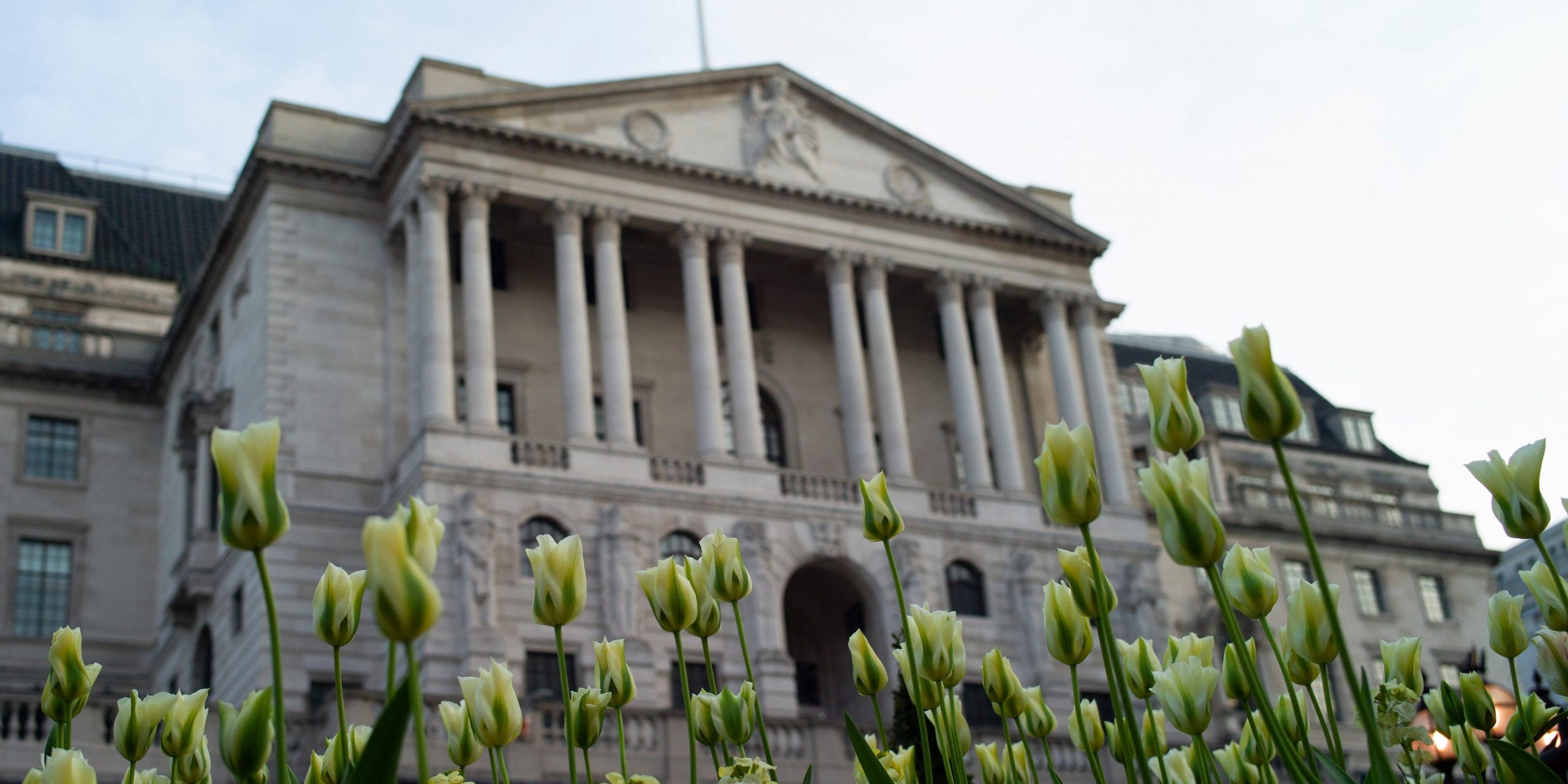
Dan Kitwood/Getty Images
- The Bank of England is set to tweak its $28 billion corporate bond program to make it greener.
- The UK government told the Bank on Wednesday that it should take climate change into account.
- Campaigners have criticized the Bank’s bond-buying for funding big polluters.
- Sign up here for our daily newsletter, 10 Things Before the Opening Bell.
The Bank of England has said it plans to make its £20 billion ($28 billion) corporate bond-buying program greener after the UK government told it to start taking climate change into account.
UK chancellor Rishi Sunak on Wednesday changed the Bank of England’s “remit”, saying it should now focus on ensuring “sustainable and balanced growth that is also environmentally sustainable and consistent with the transition to a net-zero economy.”
After the chancellor’s letter, the BoE said it would give more information on its “approach to adjusting the Corporate Bond Purchase Scheme to account for the climate impact” over the coming months.
Britain’s central bank estimated in 2020 that its bond portfolio is aligned with a 3.5C (6.8F) rise in temperatures above pre-industrial levels, clashing with the objectives of the Paris climate agreement.
Climate campaigners have criticized the Bank for giving money to big polluters such as oil majors BP and Shell through the scheme, which buys up companies’ bonds as a way of putting cash into and supporting the economy.
BoE governor Andrew Bailey said in February that the Bank was already working on how it would create a corporate bond portfolio that is "climate-adjusted."
The governor said in October that the Bank wants its bond-buying to remain as neutral as possible, to avoid picking winners.
"What I want to get to is from being what you might call completely neutral across the whole sector to saying, let's be sort of 'climate change consistent neutral'," he said.
Central banks around the world are increasingly concerned about climate change and the destabilizing effects it could have on financial systems and economies.
The Federal Reserve in December joined the Network of Central Banks and Supervisors for Greening the Financial System, and included a section in its financial stability report on the issue.
The Paris climate agreement aims to keep the rise in global temperatures below 2C (3.6F). The UK government has committed to cutting net carbon emissions to zero by 2050.
Simon Youel, head of policy and advocacy at campaign group Positive Money, said: "The Bank of England must now act quickly to turn words into action ahead of this November's crucial COP26 climate summit in Glasgow."
He added: "This mandate change should at a minimum mean the Bank dumping risky fossil fuels from its corporate quantitative easing programme and aligning it with the Paris Agreement."